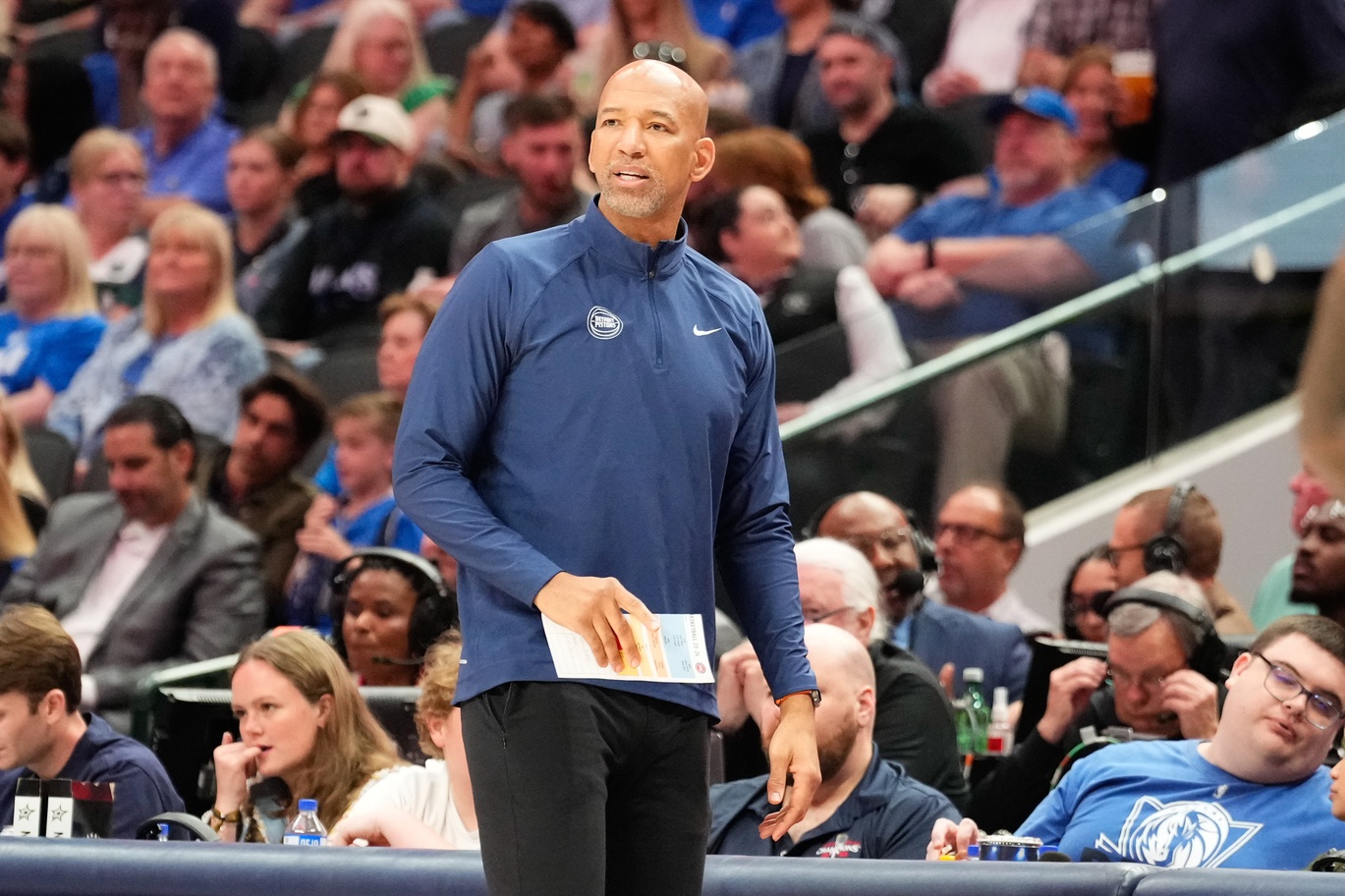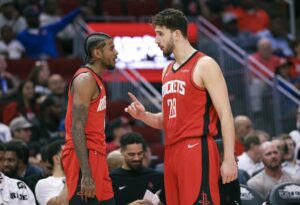One of the biggest stories in the NBA, aside from the Lakers hiring J.J. Reddick as their head coach, is the firing of Monty Williams as the head coach of the Detroit Pistons—just one year into his six-year, $78.5 million contract. The past season for the Pistons was nothing short of chaotic. His tenure was marred by controversial decisions regarding player rotations and playing time, leading to widespread disarray within the team. Williams joins the dubious ranks of being the fourth hired head coach in franchise history to last just one season or less.
Is Monty Williams the worst one-year coach in the Pistons’ storied history? Each coach who only lasted one season has a case for being the worst one-year wonder in the Pistons’ legacy. Seeing a team with a celebrated history endure this period of NBA purgatory is disheartening. Examining the tenures of previous one-season coaches, how does Williams compare? Let’s explore the historical significance of the Pistons’ coaching changes and their impact on the team’s performance and legacy.
Pistons’ Shortest Coaching Stints: Ranking One-Year Failures
4th Worst Pistons One-Year Coach: Michael Curry
The Pistons fired Flip Saunders despite his 176-70 head coach record, including three Central Division titles and three trips to the Eastern Conference Finals. Then-GM Joe Dumars deviated from hiring veteran coaches and chose Michael Curry, who needed more experience. Curry had been an assistant for Saunders during the 2007-08 season and had two stints with the Pistons as a player (1996-97 and 1999-2003). In addition to being an assistant, Curry served as the NBA’s Vice President of Player Development.
Curry’s first season was a debacle. The organization appeared stable but was on the verge of a complete teardown. Chauncey Billups was traded for Allen Iverson, a move primarily aimed at acquiring Iverson’s expiring contract rather than investing in him long-term. Meanwhile, Rodney Stuckey was being groomed as the Pistons’ next starting point guard, taking minutes away from Iverson and Richard Hamilton. Both Iverson and Hamilton resisted coming off the bench, with Hamilton ultimately becoming the sacrificial lamb, coming off the bench which caused tension between himself and Curry. Iverson also came off the bench for three straight games before the organization ruled him out for the rest of the year. It was a lot to throw at Curry, and while he handled it as best as he could, it was evident that he was thrust into a head coaching role too soon.
3rd Worst Pistons One-Year Coach: Maurice Cheeks
Maurice Cheeks didn’t do that poor of a job despite only coaching 50 games for the Pistons during the 2013-14 season. However, he faced significant challenges. Dumars constructed a complete mess roster. With two non-shooters already in the starting lineup, Greg Monroe and Andre Drummond, Dumars decided it would be best to sign another big man who couldn’t shoot: Josh Smith. Smith hit 23% from the three-point line in the 50 games that Cheeks coached. The team finished near the bottom in every three-point category, and Cheeks had to make that work.
Despite these challenges, the players couldn’t understand why Cheeks was fired. He had the players’ trust, a testament to a coach’s crucial role in a team’s dynamics. In a league where it is easy for players to turn on a coach, Cheeks managed to maintain their trust. When it’s all said and done, it seems Joe Dumars was looking for a scapegoat for his roster moves. The stark difference in the Pistons’ performance once John Loyer took over as interim head coach underscores this. The Pistons were 21-29 under Cheeks and still in contention for a playoff spot in the Eastern Conference. After Loyer took over, the Pistons went 8-24 and fell hard out of playoff contention, highlighting the profound impact of coaching changes on team performance and the gravity of these decisions in the NBA.
2nd: Ron Rothstein
Ron Rothstein had the unfortunate task of succeeding Chuck Daly, who had moved on to coach the New Jersey Nets. Rothstein, the first head coach in Miami Heat’s history, had an unimpressive 57-189 record before joining the Pistons. Detroit had just reached the championship two seasons ago and made the playoffs the previous season. If things went south, people would blame Rothstein.
Rothstein inherited a team in turmoil, highlighted by a disgruntled Dennis Rodman, unhappy with the departure of the one coach who understood him. Tensions escalated to the point where, by February 1993, half the team had voiced their displeasure with Rothstein to the local media. Complaints centered around his team handling, unwillingness to address issues, and inability to relate to players. This friction, and other teams surpassing their talent-wise, effectively closed the championship window for the “Bad Boy” Pistons. Rothstein finished the season 40-42, missed the playoffs, and ultimately lost his job.
1st: Monty Williams
Monty Williams, a two-time NBA Coach of the Year, joined the Pistons under unusual circumstances, initially turning down the job before accepting it after a more lucrative offer. A lack of cohesion and controversial decisions marked his brief tenure. After a promising 2-1 start, the Pistons suffered a historic 28-game losing streak, underscoring the team’s struggles.
One of Williams’ most puzzling decisions was starting Killian Hayes over Jaden Ivey, which baffled many observers. His reluctance to play James Wiseman significantly impacted the young player’s confidence. Despite Williams’ previous successes, his inability to foster team chemistry or implement effective strategies led to a disastrous season.
Williams’ tenure raises questions about the role of management in coaching hires. The decision to hire Williams over Troy Weaver’s preferred candidate, Kevin Ollie, reflects broader issues within the organization. While Williams’ performance was undoubtedly poor, external factors, including roster composition and management decisions, played a role.
The Last Word
Monty Williams’ tenure with the Detroit Pistons underscores the persistent challenges faced by the franchise in recent years. While his performance as head coach was undeniably disappointing, with controversial decisions and a historic losing streak, it is crucial to recognize the broader context. The Pistons’ history features tumultuous one-year coaching stints marked by unique challenges and systemic organizational issues.
Monty Williams may be one of the Pistons’ more unsuccessful one-year coaches. Still, his tenure highlights the need for greater stability, cohesive decision-making, and a clear vision for the future. The Detroit Pistons must address these underlying problems to reclaim their storied legacy and build a successful, enduring team.






